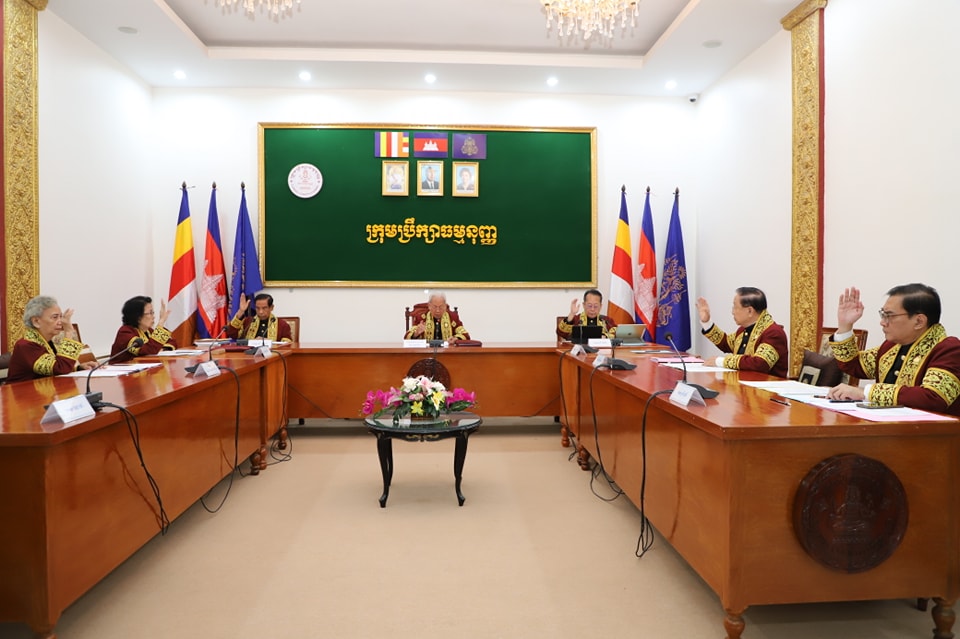
The Constitutional Council (CCC) convened a meeting to review amendments to the election law on July 3. CCC
The Constitutional Council (CCC) on July 3 convened a meeting to review amendments to the election law – which recently sailed through both the National Assembly (NA) and Senate – at the request of NA president Heng Samrin. Led by its president Im Chhun Lim, the supreme legislative body unanimously approved the amendments in their entirety.
CCC spokesperson Prum Vichet Akhara told The Post that the endorsement was grounded in legal standards and facets clarified on June 30 by Minister of Justice Koeut Rith and Ministry of Interior’s permanent secretary of state Sak Setha.
“At the same time, the CCC also verified the content with some articles of the Constitution. It proved that the proposed amendments to the election law did not run counter to the spirit of the Constitution as citizens’ rights were still guaranteed. On the contrary, the amendments only restricted the rights of candidates who stand in an election. Therefore, the proposed amendments contain nothing in contravention of the Constitution,” Akhara elaborated.
“The protection of rights and freedom of citizens has no missing points. Therefore, the terms and the conditions were added to the law to dictate that candidates who stand in the election are obliged to vote. The amendment was just input into a democratic system. Nothing has cost citizens their rights,” he added.
Kimsuor Phirith, spokesman of the Candlelight Party (CP) which has been qualified from the July 23 general election, disagreed, saying the focus should be on how the amendments would benefit the citizens.
“A comprehensive survey should be conducted and the amendments must have adequate time, not in a hurry because the value of the law does not even lie with writing on paper,” he added.
Article 142 of the amended election law stipulates fines ranging from five to 20 million riel ($1,250 to $5,000) for anyone interfering with the voting process or encouraging eligible voters to abstain. The National Election Committee (NEC) could levy additional criminal penalties.
Further, Article 143 enables the NEC to deregister any political party causing disruptions, or impose a fine of 10 to 30 million riel, with a possibility for further criminal penalties.











